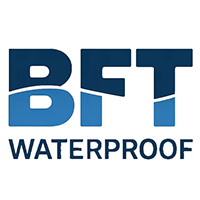With the continuous development of the construction industry, the requirements for waterproof materials are increasing day by day. PVC waterproofing membrane stands out among numerous waterproof materials and has unique advantages and is widely used in various scenarios.
Firstly, let’s talk about its advantages. PVC waterproofing membrane has relatively high tensile strength. When buildings experience deformations due to settlement, vibration, or other reasons, it can rely on its good tensile properties to adapt to these changes without being easily torn and causing the failure of the waterproof layer. For example, in the roof waterproofing projects of some high-rise buildings, as there may be slight differences in settlement of the buildings themselves, PVC waterproofing membrane can handle this situation well and ensure the integrity of the roof waterproofing system.
Its resistance to chemical corrosion is also a highlight. Around some industrial plants, there may be pollution from acidic or alkaline chemicals, or in special places like sewage treatment plants. PVC waterproofing membrane can resist the erosion of these chemicals and ensure that the waterproof function remains unaffected. It’s like a solid chemical protection shield, guarding the internal structure of buildings.
In terms of application scenarios, PVC waterproofing membrane is widely used in roof waterproofing. Whether it’s a flat roof or a sloped roof, it can, with its good adhesion and waterproofing properties, provide a reliable “waterproof coat” for the roof. It can be seen on the roofs of various buildings such as residences, office buildings, and shopping malls.
At the same time, in underground engineering waterproofing, PVC waterproofing membrane also plays a key role. Changes in the groundwater level and the penetration of water and various substances in the soil are severe tests for waterproof materials. However, PVC waterproofing membrane can effectively block these threats, ensure the dryness and safety of basements, underground parking lots, and other underground spaces, and extend their service lives, laying a solid foundation for the normal use of underground buildings.
It can be said that PVC waterproofing membrane has firmly established its position in many building waterproofing demand scenarios with its unique advantages and has become an indispensable choice for waterproof materials.
